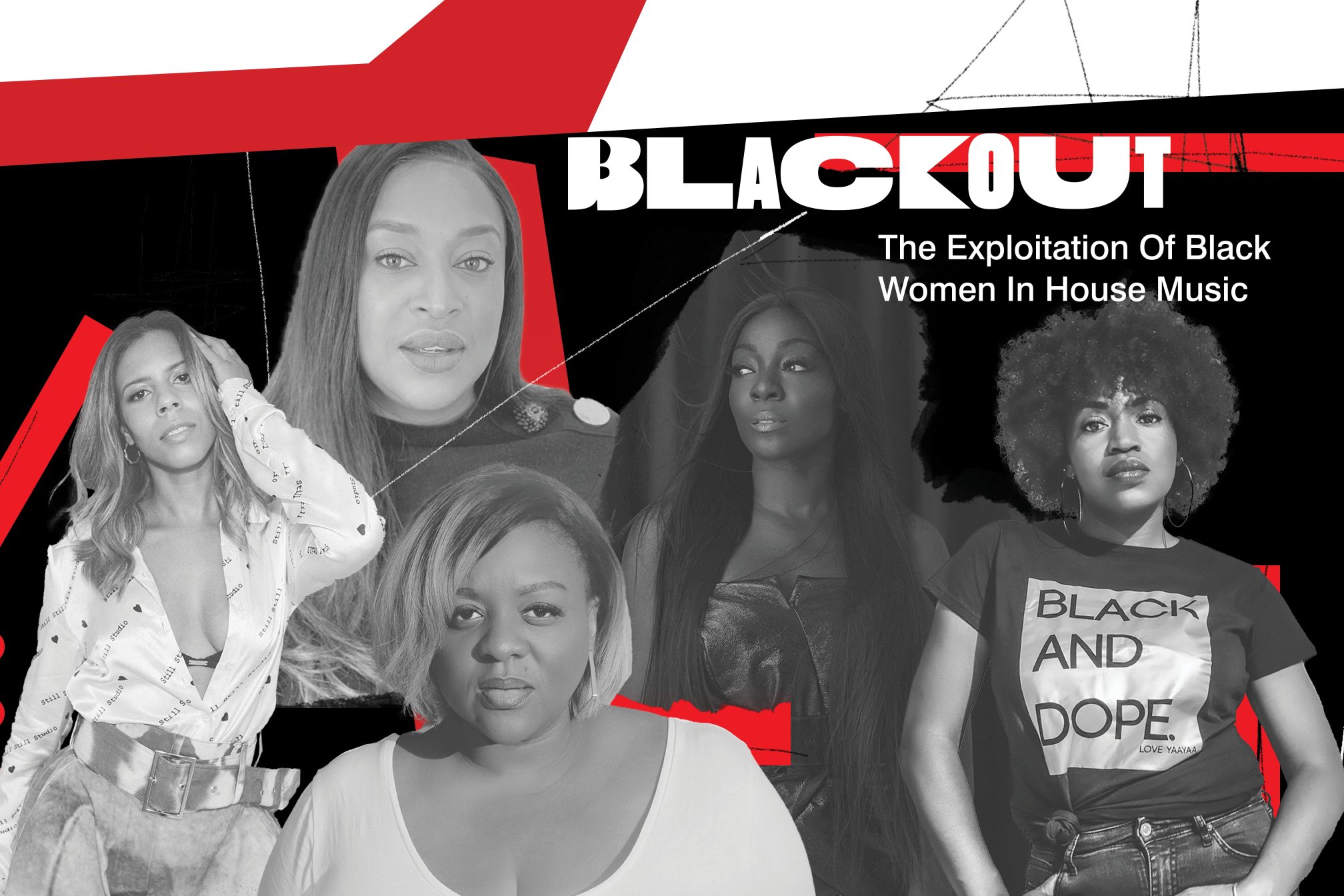 Features
Features
The exploitation of Black women vocalists in house music
Chanté Joseph talks in depth to five artists about their experiences of racism and misogyny in the music industry
Soulful vocals and melodies weave through generations, the songs our parents danced to become anthems in our childhood and follow us into adulthood. There are few sounds that garner viscerally electric reactions across several generations. House music, with its warm gospel vocals and jumpy beats, has become a signifier of what the Black British experience means. Knowing precisely what’s coming when you hear the bouncing opening notes of Rosie Gaines’ ‘Closer Than Close’ or the stirring wordless vocal introducing Robin S on ‘Show Me Love’ is almost like a rite of passage into Black British adulthood. Despite Black women being the glue that holds these staple sounds together from inception until now, they are often erased, uncredited and exploited. Conversations around music exploitation centre so much on massive stars in the US like TLC and even Taylor Swift. However, we do not talk about our shady practices in the UK and how misogyny and racism work together to steal from and wipe out the contributions from Black women.
The Black Lives Matter protests sparked by the killing of George Floyd led to a public decrying of institutions and industries in the UK. The British music industry came under scrutiny due to several artists, namely, Black British women, speaking out about their respective experiences of racism and misogyny. “You can’t have braids; you can’t have an afro, you have to have hair that appeals to white people,” said Alexandra Burke on an Instagram Live. The videos and stories continued to come in. Keisha from the Sugababes shared her experiences on YouTube: “I didn’t realise that I would be having to go through therapy to help me to cope with some of the trauma I experienced while being in the Sugababes.” One of the more shocking stories to come out at this time was Misha B’s heartbreaking experience of bullying on The X Factor. The public takedown of Misha B was something that a lot of Black women observed and felt uncomfortable about, and the singer recounting those experiences confirmed many suspicions about the prevalence of misogynoir on The X Factor and its damaging impact. “I remember thinking of ways to end my own life. You don’t even know. I remember thinking of ways I could just end the pain” she shared on an Instagram Live.
There are sadly more stories of bullying and racism within the music industry, particularly in house music. And though more people are speaking out, the fight is only just beginning. These conversations need to start including things such as fatphobia, colourism and ableism for us to reckon with the issues at hand. Patti Kane, a DJ from Newark New Jersey, has been vocal about the way misogyny plays out in music: “I’m a plus-sized Black woman in a male-dominated field, so no matter how well I play, there's always the eye candy factor. I have to work twice as hard,” she shares over email. Here in the UK, our artists have had to deal with the corruption of the music industry and faced backlash for calling out these attitudes. “I definitely think I should be at certain places and doing certain things, but I think the way I portray myself has hindered me,” Terri Walker tells me when we speak about the blacklisting that comes with calling problems out the industry.
To better understand the insidious ways that women are mistreated in the industry, I spoke to five iconic Black British female artists about their varied musical experiences and how the misogynoir of the music industry has let them down.
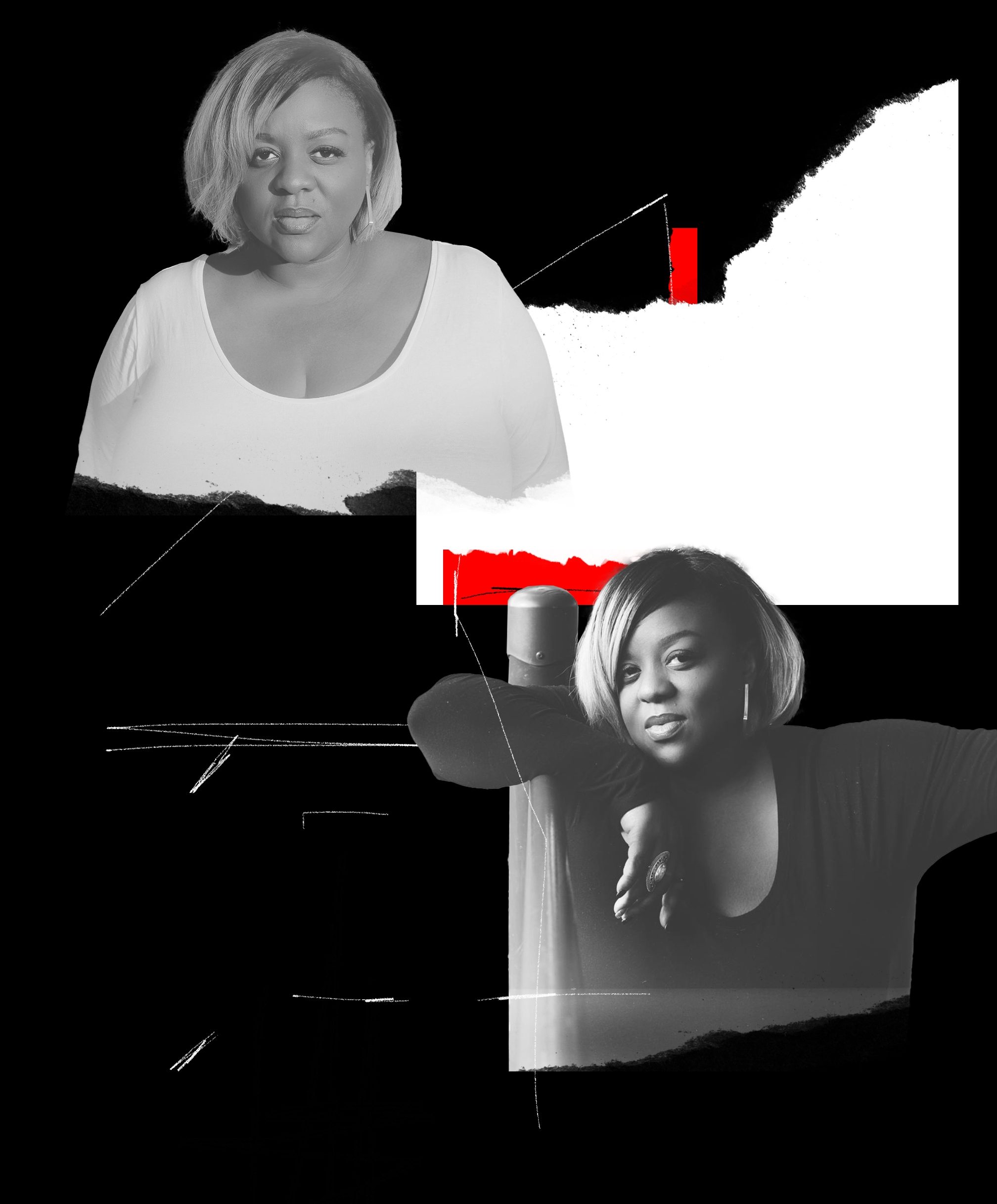
Vula Malinga
Vula Malinga is a vocal powerhouse with a larger than life personality, not even the foggy and cold distortion of a Zoom call takes away from her warm and inviting nature. When we speak, she’s finalising an online performance of BBC Radio 1’s Ibiza Classics with the Heritage Orchestra. “I’m doing a lot of things I studied for in college,” she shares. “I wanted to be a proper producer and sound engineer, but my lazy spirit kicked in and was like ‘this is hard, nah that’s alright I’ll be a singer’,” she laughs. Though she jokes, Malinga is multi-talented and truly an asset to any project she’s a part of, whether it is singing, being an engineer or pulling together productions. She is also hyper-aware of the vast demands that come with being a Black woman, not only in the industry but in life. “We have the strongest shoulders to bear the brunt of everybody’s problems; people consider us sponges to absorb and keep on going,” she says. “I see it in my grandmothers, I see it in my aunties, and I see it in my friends and colleagues.”
Malinga is well known for her vocals on widely popular Basement Jaxx tracks including ‘Oh My Gosh’ and ‘Hush Boy’. She speaks fondly of her working relationship with them: “with Jaxx, I did see something from anything that I have had creative input in. I wrote ‘Oh My Gosh’ and I sang on some other things. They weren’t the criminals, so to speak, in my career personally.” Across conversations, this was one of the few positives that came up, but it didn’t take away from the other things she had endured as a Black female artist.
In 2019 she released ‘Turn Me On’ with Oliver Heldens and Riton, the song reached number 2 in the UK Dance charts and number 1 in the US Dance Club songs on Billboard. It has been both a summer and winter anthem played on radio, TV and in shops. However, it came with behind the scenes struggles about being properly credited. Ultimately, a workable conclusion was reached which she's grateful for: “Relevancy is key in this music game and a dip in it can affect how you are treated,” she says.
Being a plus-size black woman in music Malinga was often expected to assume stereotypes that she did not subscribe to. “There is something about the UK where there are terms and conditions attached to Black women having the opportunity to be successful because we have been fed all the time that the public won’t like you if you’re different.” Malinga has had direct experience of this. “In my twenties I had a quarter-of-a-million pound deal on the table to be the next Missy Elliot, because I’m fat. I remember that meeting; I told them I’m not a rapper, but they said we can get someone to write the raps for you, you can just sing.”
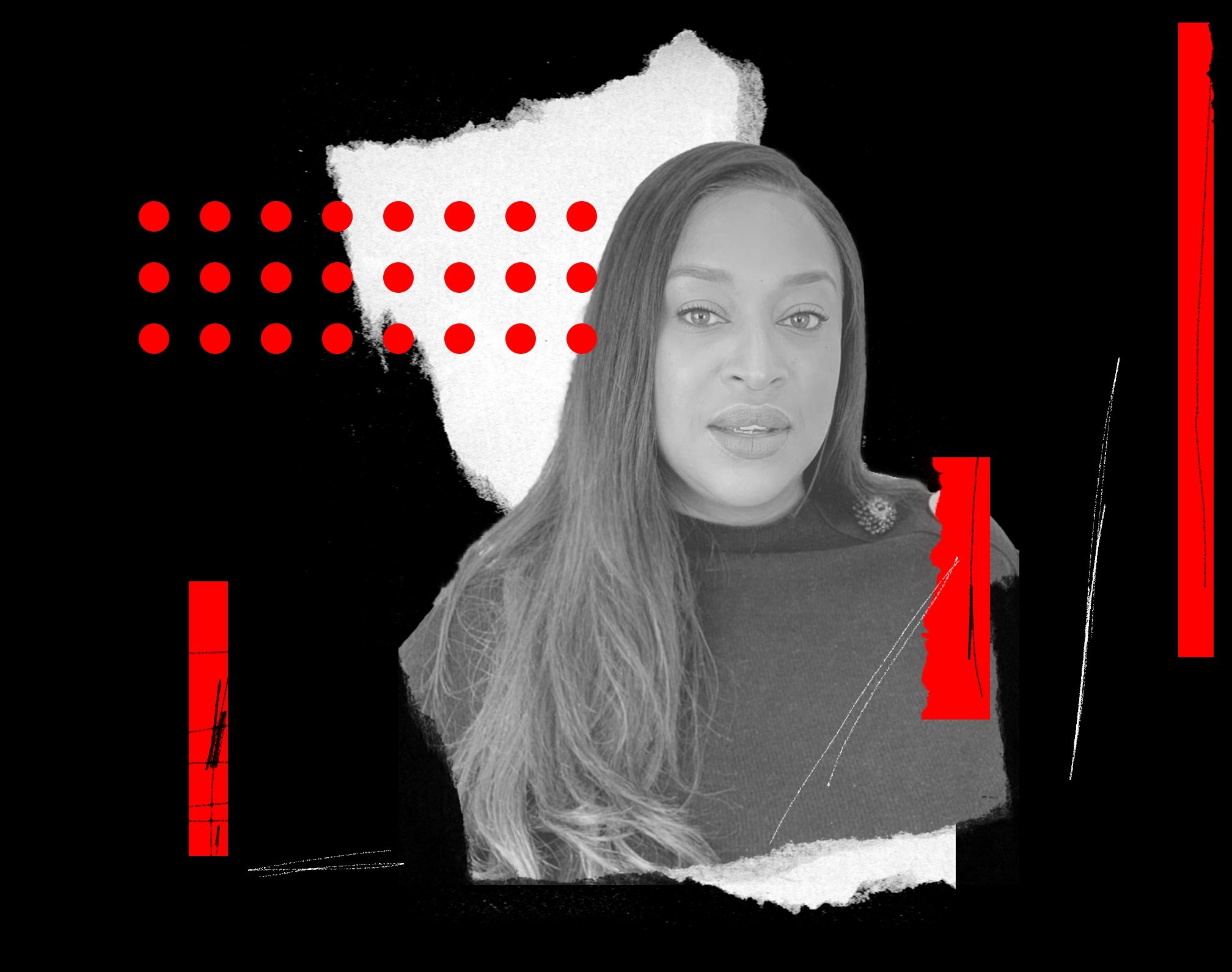
Natalie Maddix
Natalie Maddix has been running the House Gospel Choir for six and a half years now, although the idea was floating around her head for 11 years. “The concept is simple, I like raving, and I can sing a bit, so I put the two things together with some mates who like doing the same thing,” she says. Maddix speaks casually, but the House Gospel Choir is more than a musical act — it’s an entire soulful experience. “I'd argue that a lot of people's intro to gospel music is house music whether they know it or not,” Maddix states. “The mainstream music industry has tried to strip the two away, but they are intrinsically linked and sometimes we need to remind people. That is a big part of why the Gospel House Choir exists. I was sick of it; I’d had enough!” she rallies.
Maddix was hyper-aware of how typically Black vocalists on international house hits were relatively unknown and erased from songs. Through the House Gospel Choir, Maddix made a concerted effort to name those individuals. “A lot of the tunes I raved to - especially the house and garage tunes - I never knew who sung them. That always bothered me so in the early House Gospel Choir shows I used to make people talk about the artists before people sang the songs.” Maddix knew from early that the music industry wasn’t exactly fair: “I was aware that being Black and a good singer wasn’t enough, it’s not a meritocracy at all,” she says “You have to question why Beverley Knight is not thought of in the same way as Adele.” This country has an issue with amplifying and supporting soulful Black talent; this is why Ed Sheeran can be crowned the ‘most influential artist in Black and urban music’ while actual Black artists are ignored. The term ‘urban’ itself (recently dropped by Spotify and the GRAMMYs) is rooted in stereotyping, relegating Black music to a single mass — for a white man to then come out on top in this category in the eyes of the national broadcaster shows how deep the erasure goes.
After seeing the way that singers were exploited in the industry, Maddix started her own vocal agency to represent Choir members. “It’s called REP Vocal Agency, and the REP stands for ‘record everything properly’,” she explains. “We’re not educated enough to know when someone is fleecing us, and they’re not respectful of what goes into making us good.” Despite Maddix’s vast experience in the industry, people still try to shortchange her and the choir members. “Up until last week a prominent producer wanted a gospel sound, so we offered four vocalists at a particular rate. The producer got back to us and said ‘your streaming numbers aren’t high enough to warrant this rate’,” Maddix tells me. There is an inherent devaluing of predominantly Black sound in the music industry, particularly around soul and gospel. She gives another example: “I remember asking for a two grand buyout on something for an artist to cover six singers, and they said it’s too high so we came down, and then I heard for another project they paid one white girl four grand for the buyout.”
Read this next: Annie Mac: "There's not enough Black people in every level of the music industry"
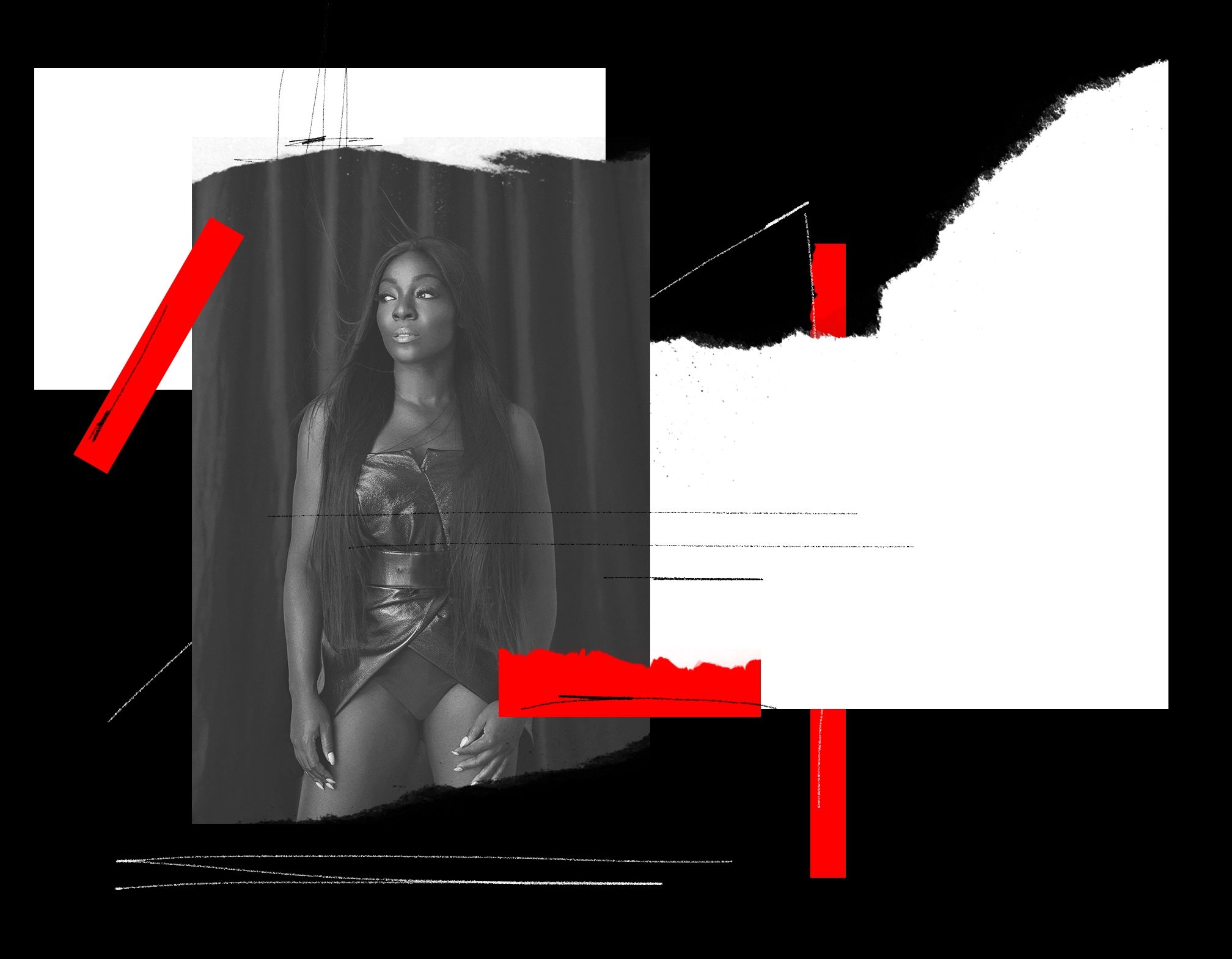
Nay Nay
Nay Nay answers the Zoom call with thick Black sunglasses on and the camera close up enough to reveal a beaming smile. Despite saying she’s not feeling great she emits radiant energy and has a high-pitched laugh that lifts the mood. Before I’ve had a chance to answer a question she’s triggered by the mere explanation of this piece: “There are so many things that I’ve seen in this industry that I’m honestly traumatised.” Nay Nay doesn’t ever mince her words. “As Black women, we endure so much, we constantly have to bite our tongues, and I’ve had enough.”
Nay Nay was thrust into stardom at a young age; she went from working on the shop floor at Selfridges in Menswear to performing on Top Of The Pops when her track with Architechs 'Body Groove' became a hit. Two decades on it’s heralded as a classic in 2020, recently sampled on Dizzee Rascal’s new single ‘Body Loose’ and regularly played on radio, in clubs, and requested at Nay Nay’s gigs.
She never expected ‘Body Groove’ to take off in the way it did initially because of the blanket rejection from big labels. “We went to every single label in the country, and they said no. I remember one A&R saying ‘mate, what the hell is this? This is one of the worst records I’ve ever heard’ and ‘dark-skinned women don't sell records’.” The success of ‘Body Groove’ was down to the constant support of pirate radio stations that played the song on repeat, leading it to become the anthem it is today.
“I remember sitting in McDonald’s, and I was thinking ‘why do I know the words to this record?’ then I said to my sister ‘oh my god it’s me!’”. Things took a sudden and unexpected turn, where labels that had once been unimpressed by the song were soon engaged in a bidding war for it, as the track slowly gained substantial commercial success. “We sold 90,000 copies at seven pounds each, that's like £630,000 already, this is before the record had even been released,” she calculates. The song was slowly rising through the charts and became a colossal track both in the UK and the US. “I got in a cab in New York, and I kid you not, I will never forget it, ‘Body Groove’ was playing on the radio. I thought they were pranking me.”
The success of the group was short-lived: to the dismay of many, the band broke up after ‘Body Groove’. “My band members were not supportive of me at all. So that made my life really difficult; they even wanted to replace me with a white girl. Because they didn’t support me, we were at loggerheads which made me look difficult.” At one point during their run Nay Nay was so overworked she collapsed on stage and had to be rushed to the hospital. During the three weeks I was in hospital my band members were trying to replace me with another well-known singer for the next single,” she says. Nay Nay’s career was also stunted because of her label’s inability to market her. “They didn't know what to do with me direction wise, makeup-wise and look wise,” she says.
Nay Nay maintains an enduring passion for music and is committed to her artistry, but the surrounding business has been a drawback. “I love music, but this game is really horrible. It's not the music, it's the people in the industry and the way they have treated me." With plans to release new music soon, she’s determined to fly the flag for positive energy for Black women in the industry.
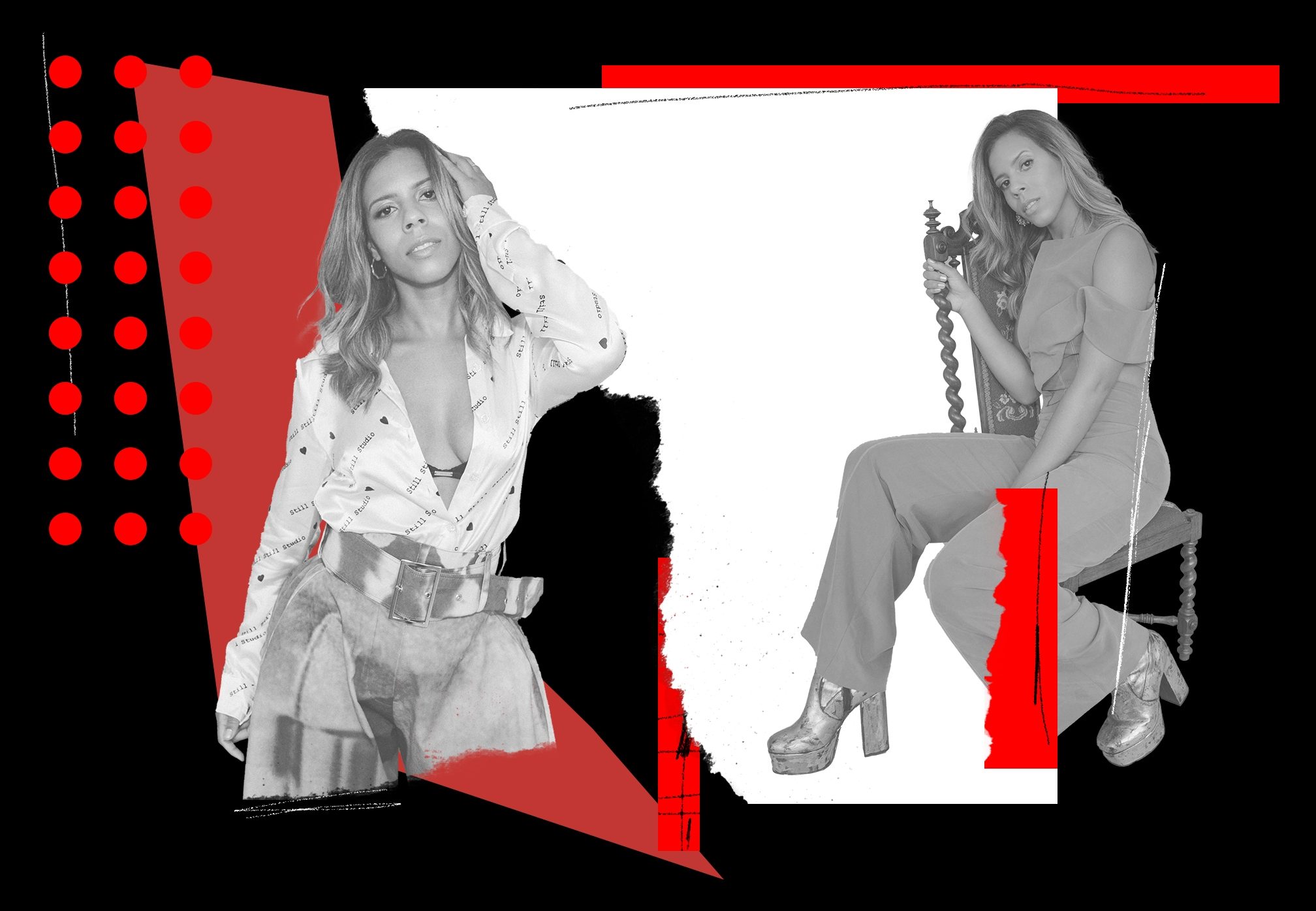
Kelli-Leigh Henry-Davila
After singing on three huge Top 10 singles, including two UK Dance Number 1s, Kelli-Leigh Henry-Davila’s - artist name Kelli-Leigh - vocals will forever be attached to our sweetest summer memories. Those catchy songs and distinctive sound coloured our Love Island summers and conjured up images of the pink flamingo floats that became emblematic of 2014’s heatwave. Despite her vocals rolling off the tongue as soon as you hear the beat, Kelli-Leigh has had a constant battle with the music industry who consistently undervalue her and erase her contributions.
She has been tapped to sing on popular tracks with producers like Tiësto and Duke Dumont. However, when she wanted to grow her music career or even receive proper accreditation, it was met with constant push back. “Music is not just my income and business, but it is my identity, sometimes I feel like I’m hindered by it because there is only so much I can do without someone above me opening the doors,” she says. Like many other women, Henry-Davila has experienced first hand the unfair nature of the music industry. “It is deeply frustrating and sad that mainly men have been making money from the songs that feature our soulful voices. They can buy their houses; I can’t buy mine! How many hits do I have to sing before I am appreciated for what I have brought to the UK music scene?” she pleads.
Black women’s vocals are used to make a great track, but visually they are nowhere to be seen. Outside of her music, Henry-Davila has featured in only one video for a song that was a lyric video of a live performance. “If these music videos had the singers in them that are so great to sing their songs, we could be looking at something so different in our society and our charts,” she says. Visual erasure of Black women in the music industry is something that Kelli-Leigh is concerned about. “I’m a darker mixed race girl, so I haven’t had the stereotypical mixed-race look that is fashionable for the industry to use. Lighter mixed race girls are more marketable.” So much of your marketability as an artist is predicated on what you look like and Kelli-Leigh is no stranger to those pressures. “I've got anxiety from social media for not thinking I look cool enough. I question if I look sexy enough to get attention from a label.”
In 2017 Henry-Davila released the song ‘For Love’ with Mario, a massive moment for her amid a wave of success following ‘More Than Friends' topping the charts. What should have been a breakthrough moment was clouded by misogynoir. “Even though I co-wrote and sang the track I got told that I was apparently too irrelevant to be on it, they wanted a more famous singer to be on it, but they were going to keep my vocals.” This is an all too familiar story from women in house music who are forced to grin and bear while their efforts are exploited. “I was labelled as stuck up. I was labelled as selfish and all these things, which I had nightmares and sleepless nights about because I wanted to sing a song that I co-wrote.” In hindsight, Kelli-Leigh wishes she had stuck up for herself more and that her management also advocated for her. “When I did ‘Be Here', which was the fourth record I did for Duke Dumont, he called me up and said I was not having my name on the song because I'm just a session singer. At that time I should have said, well take my vocals and songwriting off your record, but I was scared. When Annie Mac made it the Hottest Record of the World, when it came out, my name was nowhere to be found.”
Read this next: The 20 best diva house tracks
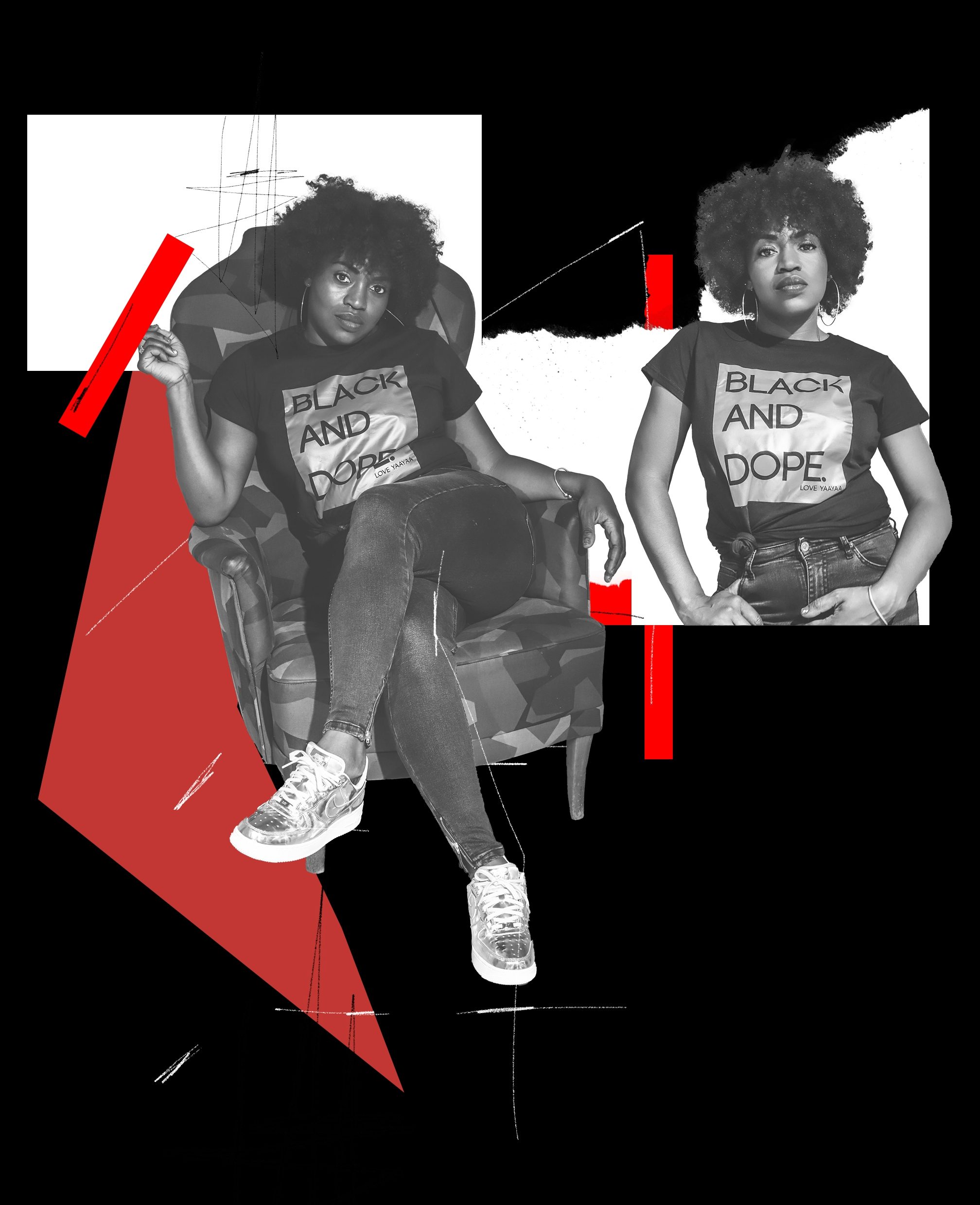
Sherona Knight
Sherona Knight has been flexing her creative abilities as a dancer and singer since she was eight years old. She had her first song signed at the age of 16 for Island Records and has since been a go-to person both as a singer, dancer and choreographer for manager’s looking to make their vocalists shine. “All of this was happening while I was still at college and then university studying Dance, English and Drama wanting to be a performer,” she says. Her skill as a multi-hyphenate creative has seen her in musicals such as Zoo Nation’s Some Like it Hip Hop, back-up dancing for music videos, and background vocals for artists such as Estelle. Like many of the women in this piece, Knight has also struggled to find her feet in the industry. “It’s a hard business; you get told a lot of things from young that can really deter you,” she says. “They mostly come from managers and well-to-do A&R people who just sometimes want what you’ve got but can’t see the vision.”
Knight often felt let down by labels that struggled to support her career and sound. “If you can sing all different types of music, a lot of the time people don’t know where to slot you in. By the time I decided I would make music I’d done it all,” she tells me. “I’d hear things like ‘how do we market you?’ or ‘what lanes do we take you in?’ but then they would take on and push artists who are white or mixed race.” Even when Black female artists are taken on or given a chance to be on tracks, they are often cheated out of payment and credit. “From speaking to other people who were involved in the industry who have gone through similar things, I found that Black female artists wouldn't get the royalties, cover of the single or the video.” Faced with this struggle, you wonder, why do people not just speak out? It’s much harder than it looks. “The moment you put your foot down and say look I think this isn’t fair, they see it and might not work with you again,” Knight explains.
The shady and exploitative nature of the industry is not lost on Knight; her own experiences have been shocking. After being sought out by the producer Guy Robin to write and sing vocals for the song ‘Still Standing’, Sherona was shocked to find that what he had told her would be a 50-50 deal was anything but that. After questioning the nature of the agreement, she asked to see the contract given to Robin, who then admitted it wasn’t the same. “He was getting royalties on the record and digital sales, and he’s getting all of these percentages while none of that is on mine.” This shocked her as before she had even had the opportunity to sign anything the song was being heavily marketed. “For about seven or eight pages on Google, ‘Still Standing’ was being promoted everywhere,” she says. “It’s been on Kiss FM and all of these radio stations and it’s for sale on platforms like Beatport. The write-ups of the track are all talking about him and have his face on the story.”
For merely asking for a deal that she was promised Knight fell victim to the all too familiar stereotype of being the Angry Black Woman. “Eventually, I got an email from the accountant, and at the bottom of the email it said ‘just give her what she wants and never let her darken our doorstep again’. It doesn’t say who it is from, but it was part of the email trail.” It is these stories that paint a picture of a more insidious music industry that treats Black women as objects rather than serious creatives.
Chanté Joseph is a freelance writer, social creative and host of Channel 4's How Not to be Racist, follow her on Twitter
Read this next: Get the best of Mixmag direct to your Facebook DMs


